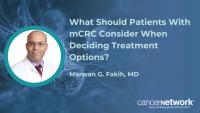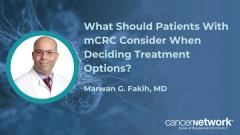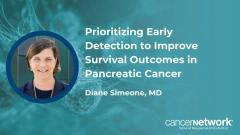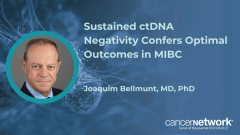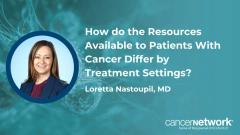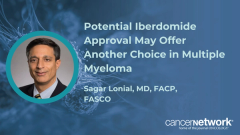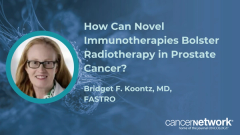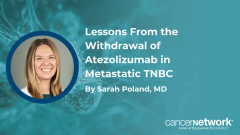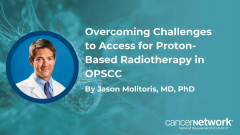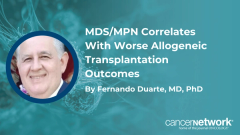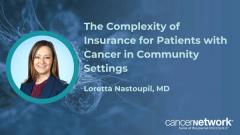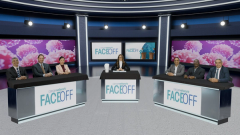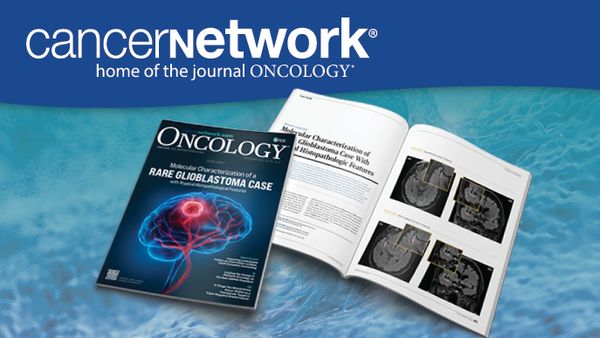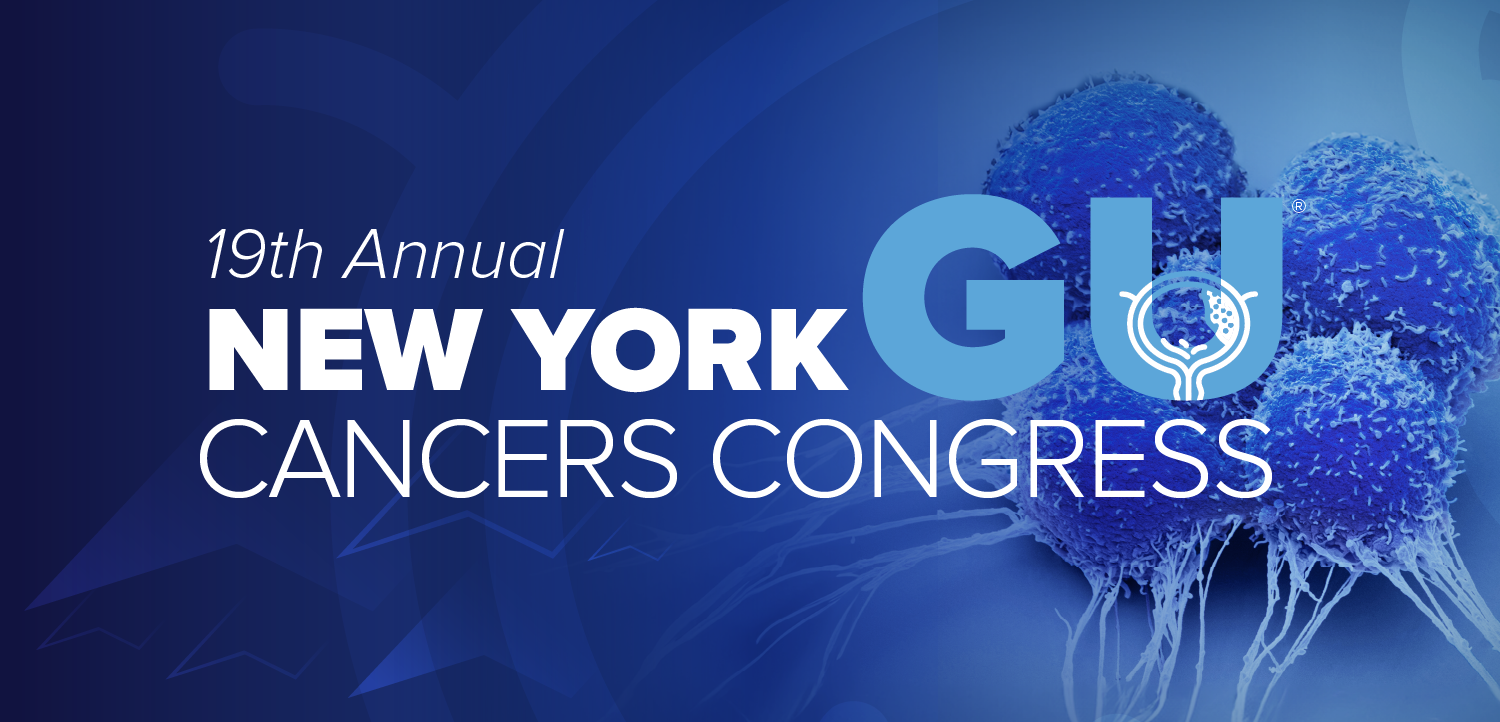Conference Coverage
Trending on CancerNetwork
Will The FDA Approve Iberdomide in Relapsed/Refractory Multiple Myeloma?
FDA Grants Tentative Approval to PNT2003 for GEP-NETs
FDA Grants Pre-Market Approval to AI Device for Breast Cancer Surgery
DURGA-1 Trial Shows Encouraging Results With Novel Multiple Myeloma Agent
What Were The Key Prostate Cancer Abstracts at ASCO GU 2026?
Latest News
Shorts
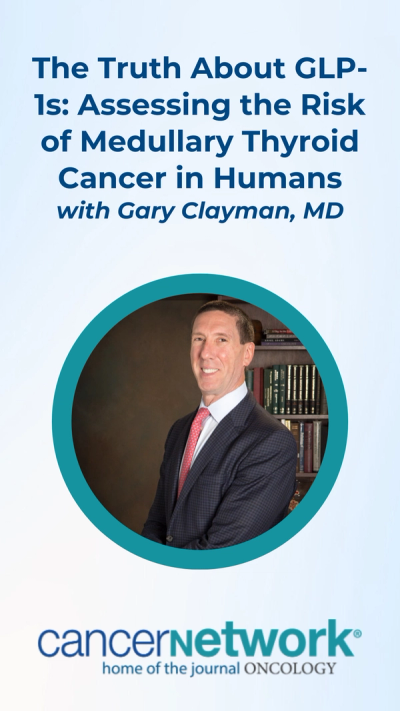
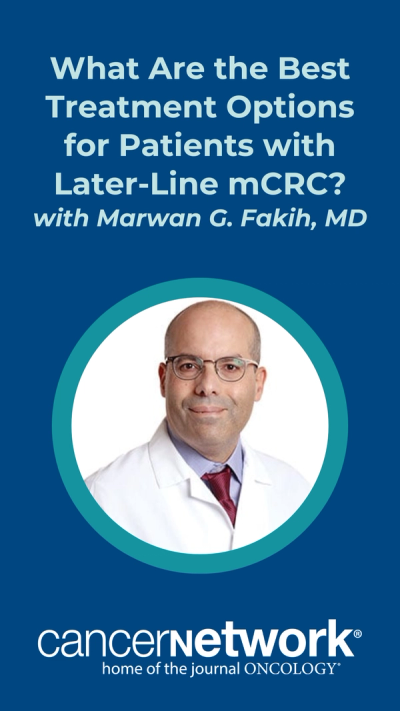


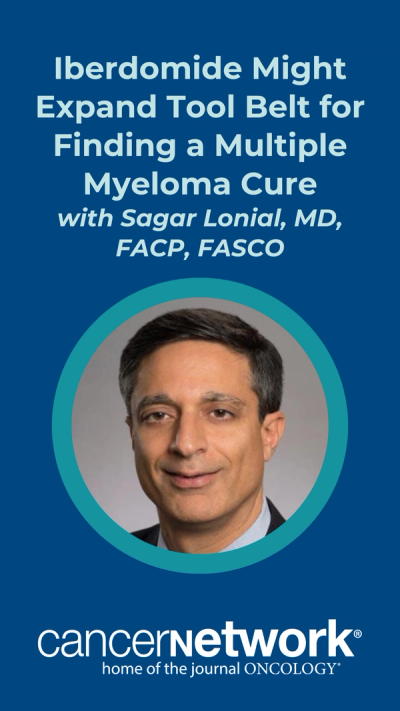

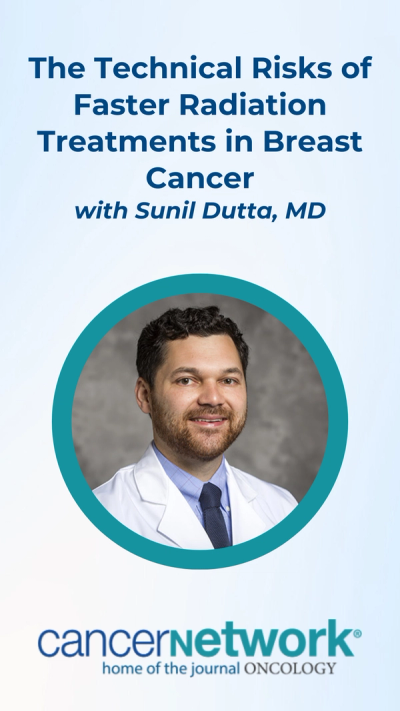
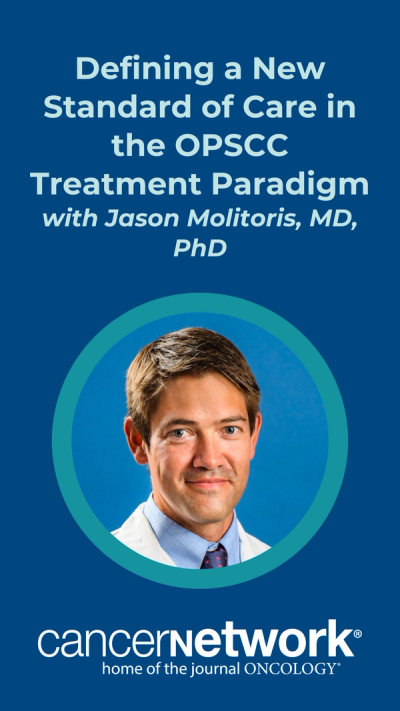
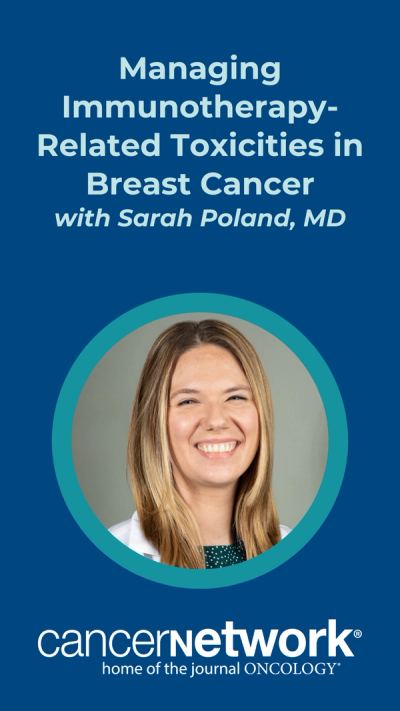
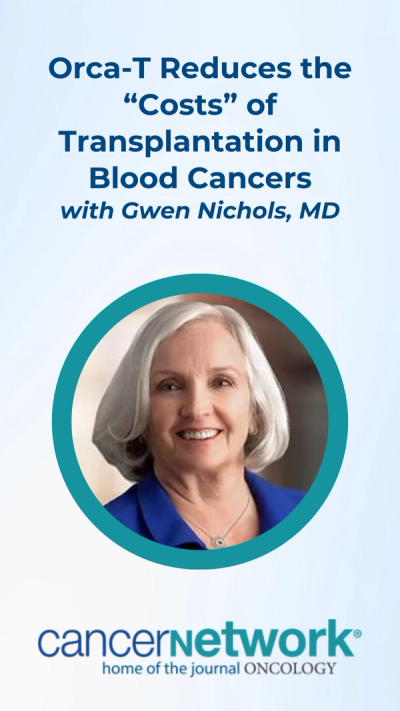
Podcasts

Navigating Depression in Cancer Care
Daniel C. McFarland, DO, and Boris Kiselev, MD, highlighted the need for oncologists to recognize and address depression for patients with cancer.

Reducing Disease Risk on National Cancer Prevention Month
Experts review strategies for effective screening and other measures for limiting cancer incidence in observance of National Cancer Prevention Month.
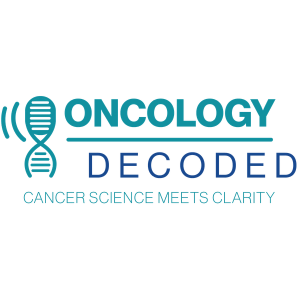
Decoding Key Community Oncology Takeaways From ASCO GI 2026
Experts review potential clinical advances highlighted at the 2026 ASCO Gastrointestinal Cancers Symposium.

From Cold to Hot: Navigating a New Frontier of Breast Cancer Immunotherapy
Sarah Poland, MD, explored the evolution of immunotherapy in breast cancer, including in triple-negative disease and HR+ and HER2+ subtypes.

International Perspectives in Prostate Cancer: A Look at Treatment in India
Experts discuss how issues related to prostate cancer diagnoses and access to care differ across practices based in the US and India.
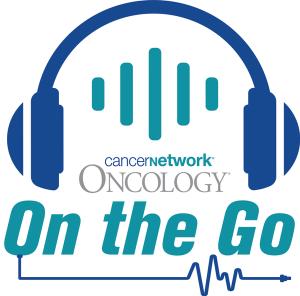
What Were the Key Abstracts and Presentations at the 2026 Tandem Meetings?
Researchers and clinicians share key updates in leukemia, lymphoma, and myelodysplastic syndrome that they presented at the 2026 Tandem Meetings.

Spreading Radiation Oncology Advocacy and Education at ACRO Summit 2026
Experts outline current initiatives from the American College of Radiation Oncology as well as potential next steps for advancing the field.

Exploring the Bone Marrow Microenvironment’s Influence on NDMM Trajectory
The immune system is a “critical player” in the emergence and outcome of multiple myeloma, according to Manoj Bhasin, PhD, MS.

How to Responsibly Use AI in Palliative Care and Hematologic Malignancies
In palliative care, AI may serve as a supportive tool rather than a replacement of clinical judgment, said Ram Prakash Thirugnanasambandam, MBBS.

Screening, Prevention, and Intervention on Cervical Cancer Awareness Month
Experts discuss new modalities such as HPV vaccines, balancing hope with realism, and other considerations in cervical cancer management.
Videos
All News

Data from a phase 1b/2 study may support further assessment of AZD0120 in earlier treatment settings for patients with multiple myeloma.

Marwan G. Fakih, MD, discussed many of the factors he considers when deciding on a treatment for a patient with metastatic colorectal cancer.

Oncologists discussed key abstracts assessing AI models for treatment selection, AKT inhibition, and PARP inhibition in specific prostate cancer types.

In the phase 3 neoCARHP trial, THP showed noninferior pathologic complete response rates compared with TCbHP in patients with HER2-positive breast cancer.
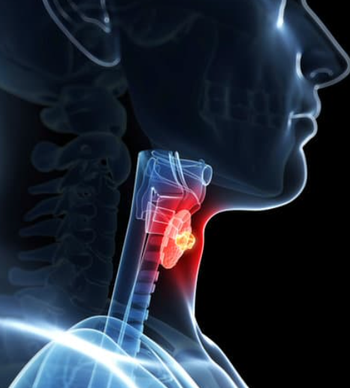
A White Paper showed there was no convincing evidence that GLP-1 RAs cause papillary, follicular, or Oncocytic thyroid cancers.
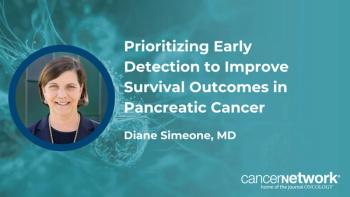
Diane Simeone, MD, explained that shifting diagnosis toward earlier stages could raise the pancreatic cancer survival rate from 13% to over 80% for certain patients.
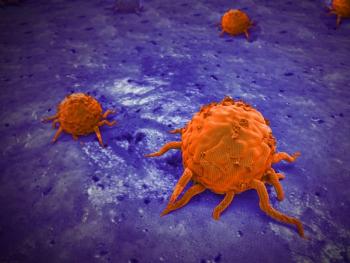
The FDA tentatively approved PNT2003, a radioequivalent to lutetium Lu 177 dotatate, for adults with GEP-NETs based on comparable efficacy and safety data.

CHMP Recommends Pembrolizumab Regimen for Approval in Pretreated PROC
Updated results from the phase 3 KEYNOTE-B96 trial revealed that pembrolizumab plus paclitaxel with or without bevacizumab improved OS in all comers.

The FDA has set a Prescription Drug User Fee Act date for the third quarter of 2026 for approving rusfertide for polycythemia vera.

Daniel C. McFarland, DO, and Boris Kiselev, MD, highlighted the need for oncologists to recognize and address depression for patients with cancer.
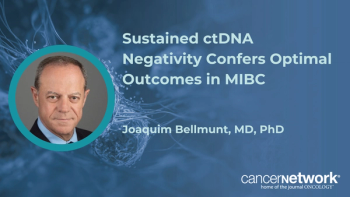
The majority of patients experiencing recurrence of their MIBC within 6 months of study start had high concentrations of ctDNA at baseline.
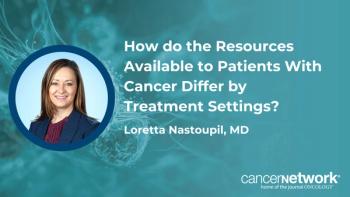
Several differences arise between community oncology centers and institutional oncology centers regarding the tools available and requirements of patients with cancer.

The triplet regimen also improved health-related quality of life and pain compared with ADT plus ARPI alone in patients with metastatic hormone-sensitive prostate cancer.
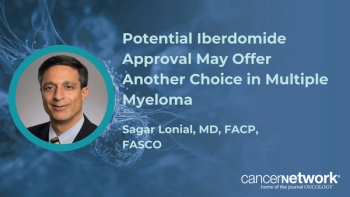
Potential Iberdomide Approval May Offer Another Choice in Multiple Myeloma
An effective regimen that partly incorporates oral therapy may be favorable from a patient convenience perspective, said Sagar Lonial, MD, FACP, FASCO.

SBRT was considered safe among patients with advanced renal cell carcinoma when added to the immunotherapy combination.
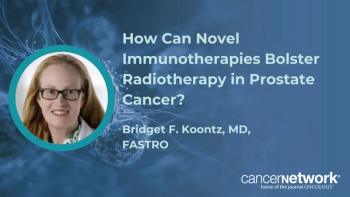
CAR T-cell therapies and T-cell engagers may produce an “exciting” benefit on the radiosensitization of prostate tumors.

Molecular Interception: Discussing the Future of Surgery in Breast Cancer
Patrick Borgen, MD, discussed using ctDNA for “molecular interception” to de-escalate surgery and minimize AEs in biology-driven breast cancer care.
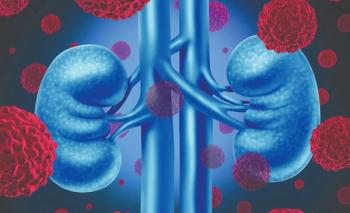
Based on findings from LITESPARK-11, belzutifan/lenvatinib may represent a new option in previously treated renal cell carcinoma.
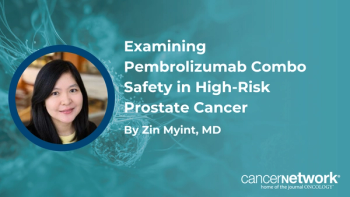
The phase 2 study aimed to compare the safety of pembrolizumab and radiation with or without olaparib in this high-risk population.

Despite differences in treatment tolerance across different RCC subgroups, survival outcomes were similar in a retrospective study.

Data from PEACE-2 may challenge the current definition of "very high-risk" localized prostate cancer without nodal disease involvement.
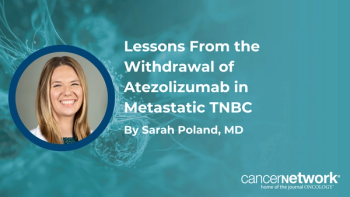
Lessons From the Withdrawal of Atezolizumab in Metastatic TNBC
Sarah Poland, MD, discussed the divergence between the IMpassion130 and IMpassion131 trials and the critical role of confirmatory trials in oncology.

Data from RETAIN-1 and RETAIN-2 show the chemoradiotherapy or BCG may remain viable options in those with ctDNA negativity but evidence of local disease.

Phase 3 data support perioperative enfortumab vedotin plus pembrolizumab as a novel treatment option in MIBC regardless of eligibility for cisplatin.

The expansion of clinical trials evaluating proton-based radiotherapy could elucidate its benefits and increase its access across the US.

Retrospective data show that relapse-free survival outcomes were worse for patients with MDS/MPN compared with those who had other types of MDS.

Often, patients in middle-income settings, are the patients who are impacted most by insurance deductibles, according to Loretta Nastoupil, MD.

Relacorilant plus nab-paclitaxel improved PFS among patients with PROC who had progression after a PARP inhibitor or who were 65 years or older.

Explore the latest clinical data and therapeutic strategies for acral, mucosal, and uveal melanomas from Mark B. Faries, MD, FACS.

Results from the PEACE-3 trial found an extended OS after patients with metastatic castration-resistant prostate cancer were treated with enzalutamide/radium-223.

Experts review strategies for effective screening and other measures for limiting cancer incidence in observance of National Cancer Prevention Month.
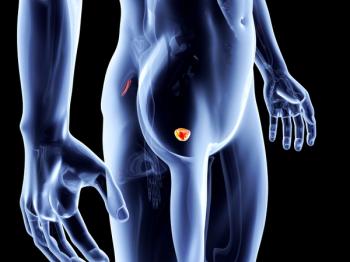
Data from the CAPItello-281 trial may support capivasertib/abiraterone as a first-in-class targeted therapy in this metastatic hormone-sensitive prostate cancer population.
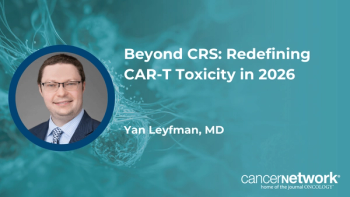
Yan Leyfman, MD, reviewed how toxicity management in hematologic oncology is shifting to phenotype- and mechanism-informed intervention.




